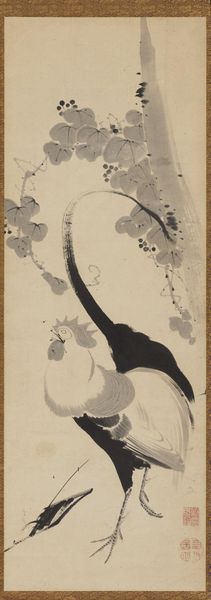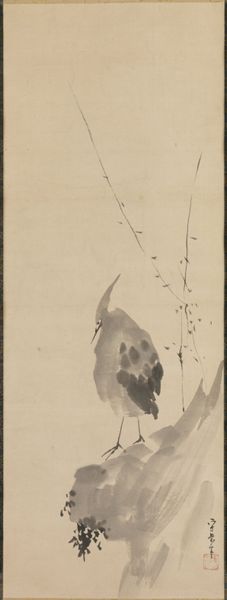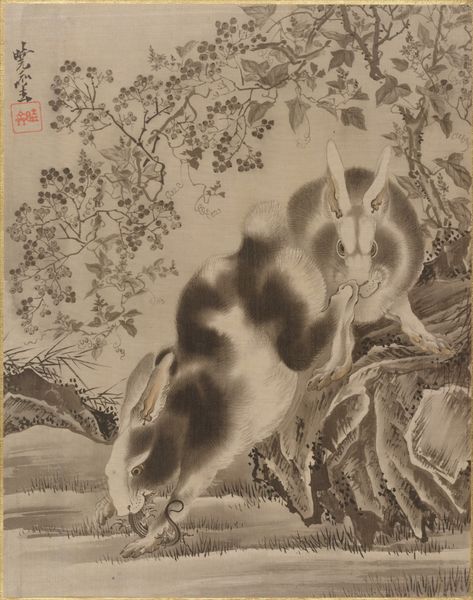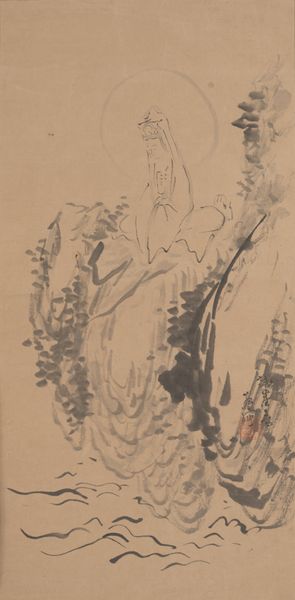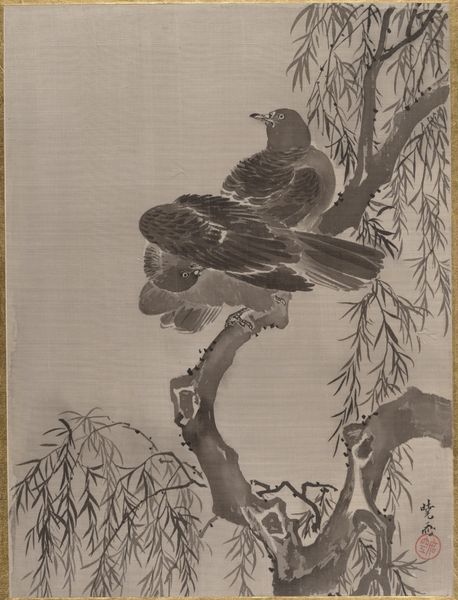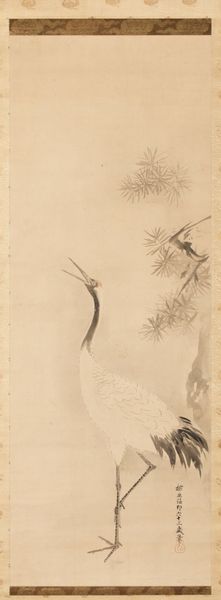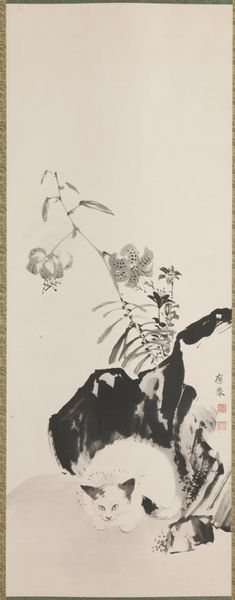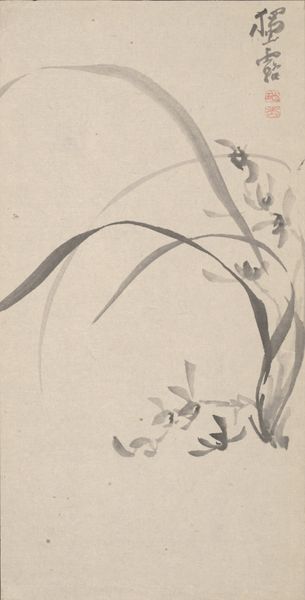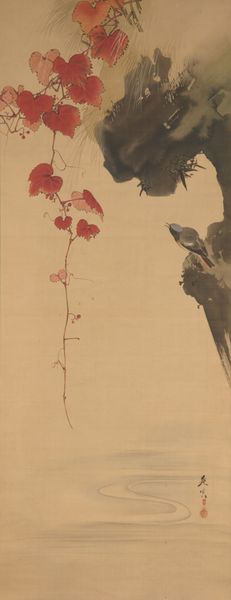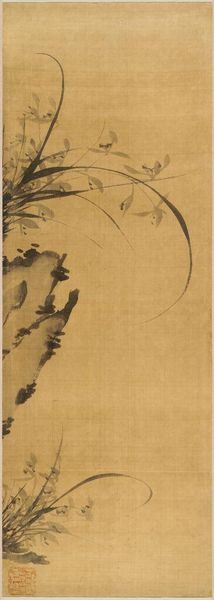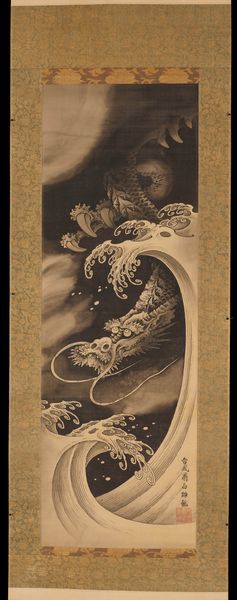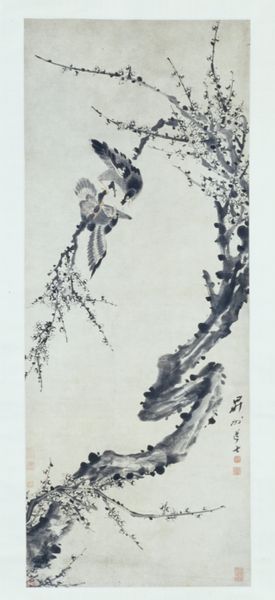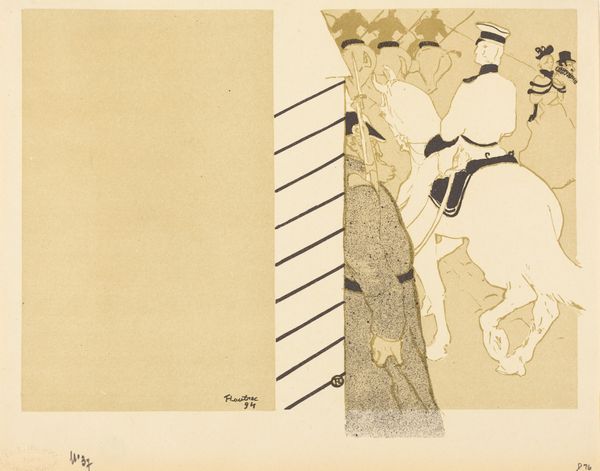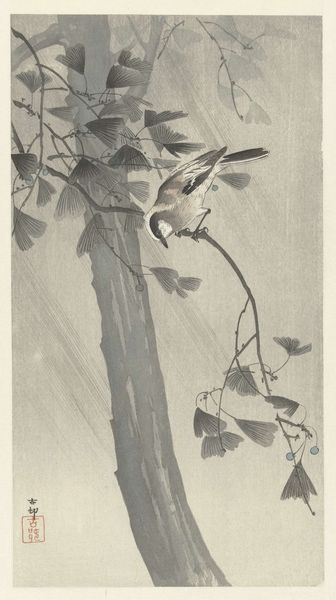
drawing, paper, ink-on-paper, hanging-scroll, ink
#
drawing
#
asian-art
#
ukiyo-e
#
japan
#
paper
#
form
#
ink-on-paper
#
hanging-scroll
#
ink
#
line
Dimensions: 46 3/8 × 10 7/8 in. (117.79 × 27.62 cm) (image)73 3/8 × 16 7/16 in. (186.37 × 41.75 cm) (mount, without roller)
Copyright: Public Domain
Editor: This is "Grape Vines in the Wind," an ink-on-paper hanging scroll attributed to Tenryū Dōjin, created around the late 18th century. The cascading vines give it such a fluid and almost frenetic energy. How would you interpret this piece in its historical context? Curator: This work exemplifies the *ukiyo-e* tradition in Japan. It isn't just about depicting nature; it's about capturing a feeling, a fleeting moment. Think about the socio-political climate of late 18th-century Japan: a rigid social structure, but also a burgeoning merchant class with disposable income driving the demand for art like this. The wind, rendered so dynamically, could symbolize change, a stirring within that societal structure. Does the upward movement contrast with your interpretation of its frenetic energy? Editor: I see what you mean. The upward movement contrasts nicely with that late 18th-century Japan context you described. So it's like a hidden subversiveness then? Curator: Subversiveness might be too strong a word, but certainly a gentle questioning of the established order. It invites the viewer to consider the power and beauty of nature. And note the absence of human figures. In *ukiyo-e*, nature often acts as a mirror to society, reflecting its anxieties and aspirations. What’s more subversive than centering everything around nature? Editor: That's such a different way to look at landscape art. I'd never considered the "absences" in a piece speaking so loudly. Curator: It challenges our preconceived notions about who and what has the power to narrate history, doesn't it? Even a simple image of grape vines swaying in the wind can become a profound commentary on its time. Editor: I definitely have a deeper appreciation for *ukiyo-e* now, understanding the potential for socio-political commentary in this genre.
Comments
No comments
Be the first to comment and join the conversation on the ultimate creative platform.
